Chris Hedges, Edward Snowden, Noam Chomsky, Paul Jay and Daniel Ellsberg on Assange
AcTVism Munich has compiled excerpts from previous interviews they conducted with experts on the Julian Assange case in 2021 and 2022.
They also interviewed them on other topics. You can find the links to the full video by clicking on the names below.
This is an autogenerated version of the transcript. An edited version will be arriving shortly.
Zain Raza
Let us switch gears here now and move to a topic which could be which some would say is the biggest press freedom case of the century, least when it comes to western society, and this is the case of julian assange. Once again, this topic has fallen the backdrop, put the whole corona coverage making headlines. You’ve been working together a lot with the legendary whistleblower daniel Elsberg, who published the pentagon papers in the 70s. What similarities do you see between the case and the second part of the question is, if julian assange gets extradited to the United states, is there still a chance to win the fight for press freedom?
Paul Jay
Well, in some ways, the prosecution, but the better word is persecution of julian assange. In some ways, it’s actually more significant than the ellsberg case. Ellsberg actually did steal top secret classified documents, and in theory, at least according to some american law, it was against the law. He knew what he was doing, and he was quite right to do it. And one way or the other, it helped in the end bring down nixon because they broke into his psychiatrist’s office, and his case got turfed, and it led to the watergate exposure and so on. But what ellsberg did, or what snowden did, that’s a kind of whistleblowing that in theory is illegal. I don’t agree with the laws. I think the public interest trumps those laws. But what assange did is not there’s no way it should be illegal. What assange did is publish what the new york times published and what newspapers around the world published. And in fact, the obama administration had decided not to prosecute assange for exactly that reason, because it meant that they well, if we prosecute assange, then we need to prosecute the new york times or McClatchy or the washington post, who were all publishing stuff from WikiLeaks, and they decided, well, we’re not going to go there.
So that dropped it, and then trump renews the prosecution, and biden continues the prosecution. So what are they saying? Well, we know now apparently trump went even further, and pompeo were talking about how to kidnap assange, how to kill assange. And I think there’s kind of two parts here. One is if the obama administration reached the conclusion that if we prosecute assange, we’ll have to prosecute these newspapers, well, maybe that’s exactly the message they do want to send now to the newspapers. Maybe the real target here is the american press. It may be that they actually don’t care if they really extradite assange or not. Maybe they would just like to keep this going and see if he doesn’t just die in jail in england. And the real threat is because we’re willing to go after assange. You newspapers better realize if you ever do this again, someone actually gets serious national security state secrets and gives them to you. If you publish them, we may go after you. Don’t think you’re immune from that? Because do the Americans really want a trial of Assange in the United States? It would be talk about the trial of the century.
It would be US foreign policy on trial. Assange would come there and said what he did was in the public interest. It was journalistic. He’d have 1000 journalists to come testify on his behalf. US foreign policy in Iraq, Afghanistan, war crimes, all of it would have to come out. I don’t know how a judge could stop that defense. They try. It’s hard to imagine that the Americans actually really want this trial. So what do they want? Why is Biden pursuing the prosecution? It must be because the national security State has said to Biden we need to scare the shit out of anyone that tries to do this. Again, I don’t actually think they want to extradite. They would like him to die in jail in England or something else terrible because the national security State relies on a narrative. A fabric of lies to justify this massive military expenditure. Wars of aggression. Whether it’s Vietnam. Iraq. Afghanistan. In the end. You name it. The national security State from day one. Meaning the beginning of Trumans after the bombing of Hiroshima and Nagasaki. Which again. Based on lies that they were necessary in order to win the war against Japan.
Which everyone. I think. More and less by now knows they were not necessary. So the line begins with the atomic weapons, the Truman Doctrine, basically that American capitalism looks around after World War II, and this even begins with Roosevelt and says, you know what? We’re the only superpower now. Let’s mold the world in our image. Let’s impose the American system everywhere we can. And the number one threat, as I said, is socialism is national liberation movements. Now, early on, they may have actually thought the Soviet Union in theory could have been a real threat. But pretty early on they realized it wasn’t. Ellsberg tells the story. That’s a very important piece of this documentary I’m doing with him around 1960, I guess it is, when Kennedy runs for president, he talks about the missile gap. And there’s this whole propaganda coming from the Air Force and Curtis Lemay and others that the Soviet Union has over around 10 ICBMs that can hit the United States and the US has maybe 100 or 200. And the missile gap is so much on the side of the Soviet Union that they might have a first strikes and there needs to be a massive plan to build nuclear weapons in the United States.
Well, when they started flying you twos and satellites, they actually looked at how many ICBMs they really had. For people that don’t know this, it’s astounding they didn’t have 1000, the Soviet Union had 41234. In fact, there was a missile gap entirely in favor of the United States. And when they realized that one, a very serious conversation started about a first strike against the Soviet Union. Two, it helped lead to the Cuban Missile crisis. It’s one of the reasons khrushchev when they realized the Americans knew how they didn’t have ICBMs put missiles in Cuba, and again, three returned to this point quickly. The fact that the Americans really seriously thought about a first strike when, although they didn’t have more than four ICBMs, they had lots of mid range ballistic, nuclear armed missiles, meaning they could take out Europe, and the Americans, at least many of the American leadership didn’t give a shit if that happened. So this lies like lying about the number of the ICBMs, lying about the threat of the Soviet Union invading Western Europe, lying that the Soviet Union might attack a first strike against the United States. When they start to realize that the Soviet Union is actually in a defensive posture, not offensive, the lies expand exponentially.
And they now know, one, they actually don’t have to have this massive military strength because of the Soviet Union. So the whole essence of the national security state is to maintain the fabric of lies. Two, there really is a threat. The threat is people want socialism in many countries of the world, nations want liberation. And, yeah, the Soviet Union did give a certain amount of support to those struggles, I have to say, not nearly as much as the Americans accuse them of. A lot of the national liberation movements were very unhappy of how little support they got from the Soviet Union. And whether that was because they didn’t have the money or they didn’t want to provoke the United States, I don’t know. But they did do some. So, yeah, the Soviet Union was the enemy partly because of that, and partly, of course, it was this enormous population outside of American led capitalist world, and then China leaves the American led capitalist world. So now you’ve got what, more than half the population of the world, I think, outside of American capitalism. That’s a big deal, which eventually gets resolved by the fall of the Soviet Union and China becoming so incorporated into Western capitalism.
So the lying is at the heart of it. So if you go and get people really inside the national security state and reveal the war crimes, the lying, the bullshit of the arms industry, that’s like putting a dagger into a place you’re not allowed to go. I’ll go back to this point. I think the real target of the Assange persecution is the American press telling them, do this again, and we might very welcome. After you. So this case of Assange is of extreme importance to press freedom, and as I say, even more than the Ellsberg case. And so the defense of Assange, the denunciation of this prosecution, and the fact that so many of the damn newspapers that actually did publish this stuff before won’t now defend Assange and keep quiet about what’s going on, it shows that it’s working. They are intimidating these people.
Zain Raza
I’m not sure if you’ve heard about this, because as I have read, that you don’t look at Hollywood a lot, but this is another question that I would like to ask from the public. There was a big trial on this Hollywood actor Johnny Depp and his exwife Amber Heard. The trial was followed by millions and even billions of people worldwide. Almost all major media outlets gave razorsharp coverage of the trial. By contrast, however, the press Freedom trial of the century, the case of Julian Assange, who may be extradited to the US. Soon, has not received even a fraction of this coverage. Can you explain why people are so disinterested in the case Assange, and why the media ignores it and gives something like a Hollywood scandal much more coverage than a scandal involving press freedom and democracy?
Noam Chomsky
Well, Julian Assange committed a major crime. He acted as an honest journalist can’t have that. There are things that systems of power want to be concealed from the population. Assange violated that. He brought to the general population information that they have every right to have, and that power systems don’t want them to have. Information about war crimes, for example. That’s a crime. You have to be punished for that. So he’s been kept in conditions of virtual torture for six years now. First, isolated in an apartment. Ecuadorian embassy is a small apartment I visited. There fewer rights than a prisoner on death row who can at least walk outside and see the sun. Assange, then the British, put him in a high security prison for the crime of not paying bail. Okay? The UN report simply described this as torture he’s personally correctly destroyed. Now he’s facing extradition to the United States, where he could spend the rest of his life, such as it is, in a high security prison. Well, that’s punishment for a major crime. You don’t tell citizens things they ought to know, but the powerful don’t want them to know. And the failure of most journalists to defend him is outrageous.
They’re the ones who should be right in the front defending. And some are very good ones, but too many are not. It’s a real scandal, also a scandal in Australia. He’s an Australian citizen. Australia should have been pressing hard for him to be released to Australia at the very beginning of this. Everyone in the world is afraid of stepping on the toes of the United States. Might as well face it. The world is international relations specialists can publish their essays, but the fact is that the world is run very much like the Mafia. If the Godfather lays down orders, you better follow them or you’re in trouble. We see this all over. Like, take the Iran situation. The United States pulled out of the joint agreement, nuclear agreement, in violation of Security Council orders. It imposed very harsh sanctions to punish Iran for the fact that the United states is violating the agreement. Europe doesn’t like it. Europe opposes the sanctions. It’s been spoken out strongly against them, but it follows them. It adheres to them because you don’t anger the godfather. Pretend whatever you like, but that’s the way the world works. Same on the Cuba sanctions.
60 years of torture of Cuban. The whole world is against it. You look at the UN votes, 184 to two, United States and Israel, but everyone adheres to the same reason. You don’t anger the godfather, who has plenty of weapons to punish you. More weapons thanks to Putin’s stupidity.
Daniel Ellsberg
I want to address larger answer to your question. We’re always focusing on the free speech aspects of this, but we’re talking about free speech about a war. A war should not be going on. Actually, I want to put this in the context of fairly recent history. 50 years ago, when I was 40, I was facing the same charges that Julian is now, and for the same reason. Essentially, I had, in 1971 revealed truth that went back to 1945, almost a quarter century earlier, about a war we should never have been fighting. And that was made clear by the 7000 pages of top secret documents that I put out. Nevertheless, that war had four years to go. Up to that time when I did it, when I put out this information, we had already dropped several times the explosive tonnage of World War II on Indochina, and we had another World War II to go. So I was exercising free speech in order to stop us from a wrongful war and did not succeed at first. My trial was stopped because of crimes committed against me that came out in the course of my trial. And amazingly, I have lived long enough to see Julian Assange facing the same charges for the same reason, essentially, and subject to the same crimes by my government.
In this case, illegal surveillance, surveillance of June, as you’ve heard already, in his Ecuadorian embassy, where I visited him a couple of times, and efforts, even discussions of killing him. And I myself, it came out, had been subject to a scheme to incapacitate me totally kill me or incapacitate me totally on the steps of the capital in 1972. As I say, at that point, the war had still three years to go. But we were involved, in other words, not only in speaking freely, but in doing so in order to reveal an aggressive war, a wrongful war that should have been stopped long before. And simply telling the truth in either case was not enough to stop that war. But in my case, it did prove a necessary element. We are now think of where we are at this point. Ten years ago, in 2010, I accompanied Julian Assange at revealing the Iraq warlogs to a press conference in London. And in handling those and refusing to put over the secret material, refusing to give it to an authorized person, whoever that might be. I am subject to trial and conviction in the eyes of our Department of justice, as Julian is, by that wrongful and unconstitutional reading of the Espionage Act, and I would be glad to join him in that.
But obviously the point here is he should not have been on trial at all. He was doing what he should have done, just as I did, was doing what I should have done. I was facing 115 years in prison for doing that. Jolene is facing 175 kind of inflation here, but the effect on our lives would be pretty much the same if we got convicted. So I’m saying that in the case of this war. Let us recall this is 2020 julian was revealing that information about Afghanistan. Crimes in Afghanistan. And a wrongful war in Afghanistan and Iraq in about the first decade. 910 years after that war had started. And revealing. As I stood by him in England. Revealing. Obviously. That we were not only committing crimes daily of turning people over for torture. And in occupying a country whose people did not want to be ruled by foreign Occupiers or by proxies whom they announced. That was ten years ago, ten years after the war, after the revelations that Julian made, thanks to Chelsea Manning. That should have stopped the war then, ten years late. It has gone on for another ten years. It’s just stopped just now in revelation of the fact that we were not able to conquer people who did not want to be occupied and would not cooperate with Occupiers and never had, whether it was Alexander or the British or the Russians or anybody else.
And we finally recognized that ten years at least after we should have recognized it by Julian and Chelsea Manning’s revelations. So we’re staying here now that we should be backing up. I hope that when the High Court meets in London that tomorrow or the next day they will make a decision. So this will be the last time that I have to point out that Julian Assange is wrongly held right now, should not have been held at all, should not be held another day, and should be free to tell the world more truth, which is his business in life. Thank you.
Zain Raza
I want to switch gears here and now, focus on Julian Assange. Before I start digging deeper into the topic, I just want you to talk about how culpable is the media in today’s? The result that has come out that Junior Assange will be extracted to the United States. What role have they played so far?
Glenn Greenwald
Well, a lot of you probably know that during the Trump years, one of the main concerns the media expressed was whether press freedoms would be attacked by Donald Trump. The Washington Post, very early on in the Trump presidency, adopted a new motto, a corporate motto that appears at the top of the page that says, democracy dies in darkness. There were a lot of claims that Trump was a great threat to press freedoms because he would often be critical of the press. He would insult the media. He called the press the enemy of the people. The gravest threat to press freedom that happened during the Trump presidency. By far, not even close, was the indictment of Julian Assange, where they’re trying to charge him with 18 felony counts under the Espionage Act. The same law they used against Edward Snowden, the same law they’re using they used against Danielsberg, the leaker of the Pentagon Papers in 1071, to say that he committed crimes in connection with the publication of those documents provided to him by Chelsea Manning in 2010. It doesn’t have anything to do with the 2016 election or his role in that, at least formally.
There’s nothing in the indictment that has anything to do with that. But the argument is that by publishing those documents and working the way he did with Chelsea Manning, he became a criminal. So the theory used to criminalize him, if adopted, would essentially criminalize all investigative journalism, because everything he said to have done that makes him a criminal, namely, helping Chelsea Manning try and evade detection. Encouraging Chelsea Manning to provide more documents, soliciting materials from the public, and encouraging people to hand over classified information are things investigative. Journalists, if they’re good, do all of the time. I talked before about how the first article I ever wrote about the dangers of the Assange indictment was in May of 2019. In June of 2019, with my colleagues in Brazil, started a year long investigative expose of showing the corruption on the part of high level officials in the Bolsonaro government. And in January of 2020, I was criminally indicted by the Brazilian government using exactly the same theory the US government was using to, and is using to prosecute Assange. The Supreme Court intervened in my case and essentially issued a ruling that said that would be a violation of my press read and that’s the only reason I’m not arrested and in prison is because of that ruling.
But this theory is incredibly dangerous to anyone around the world who does journalism. And remember, one of the things that makes it extra dangerous is julian Assange is not an American citizen. He’s not on US.
Soil.
The US is reaching across the world to try and NAB him and bring him back to the United States, a country to which he has no connection. Which I presume means that if The New York Times publishes secret documents from Iran, as it’s done, or Russia or China, any of those governments under this theory would have the right to extradite those reporters to their countries and charge them with harmony, national security, or espionage. And yet you hear almost no complaints, no concerns, no warnings from the American media. They were hysterical. Every time Trump would tweet an insult about some TV personality as though that was a grave attack on press freedom. Here you have an actual attack on press freedom. Some of them, when Trump did it, came out in defense of Assange. But now that it’s the Biden administration that has picked up this case and is aggressively pursuing it and refuses to drop it, there’s almost no coverage of the case at all of the case at all, let alone denunciations, about what the Biden administration is doing because the American media hates Julian Assange so much. They hate him for personality reasons.
They hate him because of jealousy that he’s broken so many stories more than they ever have. Or will they hate him because they perceive that he helped Trump in the 2016 election by reporting accurately on Hillary Clinton. So the hatred level for Julian Assange is so great that almost nobody in the American media is even covering the story, let alone objecting. And that, of course, is a major reason why the US government is getting away with trying to drag him back to the United States and keep him in prison forever.
Zain Raza
So Julian Assange was spied upon while he was in the Ecuadorian embassy. In addition, there were plans discussed by the CIA and other government actors to assassinate him. Lastly, the star witness of the US, who has documented history of several convictions for sexual abuse of minors and even for committing financial fraud, admitted to fabricating key accusations against Assange. These facts received little to no attention in the German media when the verdict came. It was just presented very objectively. So in your assessment, why do you think these facts were not given the weight that they deserved in the British court? So, for example, if Nawali was tried in Russia and all of these things were done by the Russian government, we would have seen a big coverage and weighted put on these facts. Why do you think these developments were just simply thrown out by the British court?
It’s amazing. I visited Julian Assange in I believe it was 2018 in the Ecuador namask in London. I visited him as a journalist. I visited him with my husband, David Miranda, who is an elected member of the Brazilian Congress, who’s a member of the Foreign Relations Committee, and was traveling on a diplomatic Brazilian passport to London. We went there to do an event together about what happened at Heathrow Airport during the snowden, reporting to David, and we went and visited the embassy. And we were among the people who were spied on by this private contractor hired by the CIA, as are many other people, an incredible breach of diplomatic protocols of press freedom, of privacy. Beyond that, he is suffering greatly inside of that embassy, inside the prison where he is. His doctors have said that his physical and mental health are deteriorating rapidly, and yet there’s very little coverage of it. And what you have instead is the American media, the German media, the British media, they love to accuse other countries of attacking journalists. They love to talk about what Putin has done to Melvini, what China has done to journalists. All of which may be true.
But what standing moral credibility does the United States and the UK have to condemn other countries for punishing journalists or attacking press freedoms when the person who I would argue is one of the most consequential journalists of our generation. If not the most consequential. Is imprisoned by both of those governments. Maltreated in every way imaginable. His basic human rights and political rights violated for years with almost no objection. It’s something that every other country in the world will just laugh at when the US and the UK pretend to be able to denounce other countries for attacks on press freedom. And they should be laughed at because they are among the worst violators.
Taylor Hudak
While we are on the subject of media freedom, censorship and press freedoms, let’s talk about Julian Assange in his case. Just last week, UK Home Secretary Pretie Patel approved the extradition order, which means that Julian Assange is one step closer to facing extradition to the United States. What is your perspective on this case and how do you see this case moving forward?
Chris Hedges
Well, he’s been railroaded. I mean, it’s judicial Panama. I’ve sat in on some of the hearings in London and then monitored others online during the pandemic, so I’ve followed hours of court proceedings. It is judicial force on innumerable points, getting the fact that he never committed a crime. What he did, he was a publisher. He didn’t actually like Daniel Ellsberg. He didn’t actually steal the documents to publish them. He was provided this material like any publisher. And a lot of this stuff, especially back in 2010, this was all picked up by major newspapers and news organizations. El Pais, the Guardian, der Spiegel, the New York Times. He’s the most important publisher of our generation, hands down. He’s done more to expose the inner workings of power than any other journalist or publisher alive. And they’re going to make him pay for it. But the way they have had to deform basic law is quite staggering. I mean, for instance, UC Global, the Spanish security firm, was filming all of his meetings with his attorneys and providing them to the United States, which, on top of it, was considering assassinating him and kidnapping him. I mean, that alone invalidates the trial because it eviscerates attorney client privilege.
It’s really quite staggering how the UK has essentially decided to engage in this judicial Panama. Those of us who followed the case since it began understand that he’s being railroaded. We don’t have much hope. We’re going to fight it. But now he gets to appeal on other points and goes back. It’s kind of strange and convoluted. It goes back. These are non trials, by the way. They’re all hearings. It goes back to the lower court. So that’s probably another year of legal wrangling. But it seems pretty clear that the UK is working in collaboration with the Biden administration to extradite him. And then, of course, the end result if when he’s found guilty, is that even to possess classified material will become a criminalized offense. I mean, let’s remember, he’s not a US citizen, WikiLeaks is not a US based publication, and yet he’s being charged under the American Espionage Act. I mean, that itself is a topology. It makes any sense, but what it does is shut down any kind of serious investigation into the mechanisms of power. I just want to say, as a reporter for the New York Times, I possessed and published classified material.
So it’s quite ominous. In terms of our ability to hold.
Taylor Hudak
Power accountable, this case could really potentially criminalize standard and normal journalistic activity. And we had activists in Munich has also covered this case extensively, and there has been a number of legal irregularities with this case. Now, if Assange is extradited to the United States, we know that he is likely to be tried in the Eastern District Court of Virginia. This is a very secretive court, perhaps a very corrupt court as well. So can you speak a little bit more about what he would potentially face in the United States as far as the prison conditions, as well as what his court case would be like?
Chris Hedges
Well, this is another legal anomaly, because he was judge Vanessa Baretzer decided to halt the extradition process because first, Julian is in very poor physical and psychological health. He suffered a small stroke. He has been hallucinating. They found a razor in his cell, under his socks, banging his head against the wall. It’s quite distressing the kinds of things as anybody would break down after ten years of this kind of persecution. Seven, of course, in the Ecuadorian embassy and then now in this high security prison where he’s held in isolation. So then what happened was the US provided, quote unquote, assurances. They have no legal validity in a diplomatic note and that’s a high court agree to the extradition. But in that note, they said that those assurances would be given so long as Julian didn’t violate any rules. And paraphrase, I remember the exact language, which is ridiculous, because the moment he steps foot in the cell I teach in a prison. It’s a totalitarian system. They are able to do whatever they want. They said in a note they wouldn’t hold him in Florence, Colorado, in the Supermax prison there pretrial. Well, this is another faint, because nobody has held pretrial in Florence ADX.
It’s the absurdity of it. So there’s no question what they’ll do to them. They said they wouldn’t use sam’s. These are special administrative measures, but just complete isolation. You can’t even communicate often with your lawyers, certainly with anyone else, which breaks you down. That’s what they did to Fajit Hashmi, who was a graduate student in. London and they brought him back. And by the time, after 23 months of this treatment, they brought him into the courtroom as a case I covered, and he was just a zombie. He didn’t even know where he was. So that’s the goal. That’s what they will do, as you’re correct in pointing out that there was a reason they sent him there with Gordon Cronberg and these figures who have rabid Islamophobes and far right figures who have persecuted, especially Muslims. Samuel Aryan, the Palestinian academic, right after 911, they went after all of the major Palestinian figures in the United States, the Holy Land Society, everyone else, and wiped them out at Israel’s behest, of course. So the court has just a horrid reputation. That’s when they hauled in Chelsea Manning, because what they really want is to get Manning to collaborate with them and say that there was collusion between Manning and Julian to extract the material that was leaked to him.
And that then becomes a criminal offense they can use against Julian. Manning, to her credit, has refused to do that. But Kromber, they threw her in jail. There was another suicide attempt. These people are ruthless. Remember, these are the people who run black sites around the world and Guantanamo, and they’re the same people.
Edward Snowden
Thank you very much. It’s a pleasure to be with you. It’s difficult to be here. I struggle to understand how we can be here after so many years. There have been so many stories told, there’s been so much criticism, there has been so much deception. And where has it brought us? Has this been constructive? Is this a victory for us, for the state, for humanity, for our rights? When I came forward in 2013, I said the reason that I came forward was that we have a right to know that which is done to us and that which is done in our name by our governments that was already under threat. And when you look at the world since, it seems that that trend is accelerating. Do we still have that right? Do we have any rights if we don’t defend them? Well, today we see someone who has stood up to defend that right, who has aggressively championed that right at an extreme cost. And it’s time for us to defend his rights. What we’re witnessing is a murder that passes without comment. And I want to say that it is difficult for me to comprehend the spectacle of the press, of the nation, the developed world, aiding and abetting with full knowledge, a crime not only against this man, but against our public interest.
However, at this moment, we all see this, we all feel it. It’s no less familiar than the shoes on my feet. Everywhere we look, from Afghanistan to economics, from pandemic to pervasive surveillance, the obvious has been made unspeakable. It has become unspeakable because the truth of our circumstances could be taken as evidence in the defense of the actions of the outer favor. And in the eyes of the american state, few represent this class a greater object of hatred than the person of julian assange. He has been charged as a political criminal, something that I understand quite well, but he has been charged as the purest sort of political criminal for having committed the transgression of choosing the wrong side. The charges, which are absolutely an unadorned legal fiction. We are told to believe the state has these powers over what can be said and what can’t be said, the things that can and cannot be said. But what happens if we permit that? Where does that lead? What are we? Can we be said to be free if even our power to express ourselves, to understand the facts of our world can be fenced off from us?
And we look beyond, through the gauze, through the veil, and what could be the facts of the world, but we’re not permitted to acquire them. Julian assange did not accept that. And the charges against him reduced to an allegation to commit the crime of journalism in the first degree. Which is to say. When we look at it applied elsewhere. The same sort of publication of classified material that we see in the new york times or the washington post. Aggravated by a conspiracy to accomplish the same. Which is simply uncovering an uncomfortable truth. But something distinguishes julian assange from the greatest newspapers of our day, and that is his independence. Julian assange is not the person who will be told no lightly. I remember in the case of 2013, when I came forward and revealed evidence of mass surveillance, which the government of my country had constructed, the apparatus of mass surveillance, an entire scheme that spanned the globe with the participation of australia, new zealand, canada, and of course, the united kingdom. And when the newspapers of all of these countries began publishing these things, one of the papers who held the archival material originally included the guardian, was headquartered in the united kingdom, still is.
And I remember reading a story, of course, I wasn’t there for it personally. I’m getting this second hand. Who knows what we can rely on the state of journalism as it is today. But they were approached by the british state, who said, okay, okay, you’ve had your fun. You’ve done enough. Now it’s time to stop. And they had to send their archival material away to the united states, to a partner publication, because they no longer believe that they were safe to continue publishing. And they were right. Agents of the british state went to the guardian. They destroyed their laptop computers. They’ve got it on film, putting angle grinders to computer chips, trying to erase any trace that these stories have been written from within the confines of the industry. Now, julian was not deterred by that, and he never would be. When you perform the level of surveillance against a person that has clearly been performed, and is being performed even today, certainly in prison, against Julian Assange. You understand at least something about that character. You understand what the breaking point is. You know what it’ll take to make them bend. And he didn’t bend.
He will break before he does. He has consistently and continuously dared to speak the unspeakable in the face of opposition, in the face of power. And that is a remarkable and rare thing. That is the reason that Julian Assange sits in prison today. If you love the truth, as I think everyone here does, you wouldn’t be listening to this, you wouldn’t be watching this, you wouldn’t be participating in this. You wouldn’t care about this, unless something in you told you that something important was happening here. If you do care, as I think you do, you are a criminal of the same category as Julian Assange in the eyes of the state. What differentiates you, what divides you from him, is only the degree. We share the same guilt. Each of us share in the crime. And we are unindicted co conspirators in his quest to raise a lantern in the halls of power. Each of us shares in the forbidden desire to see justice done, not merely to the instruments of these darkest moments of the human condition that we’ve heard about all day here torture, extrajudicial killings, aggressive war. But to see justice done to their architects.
And I have to say here, each of us will also share. And to me, it will happen without the faintest regret in his ultimate fate if we do not stop what is happening now. What is happening to Julius Assange is a crime, and he must be freed. If we’re going to free the world, we have to free Assange. Thank you and stay free.
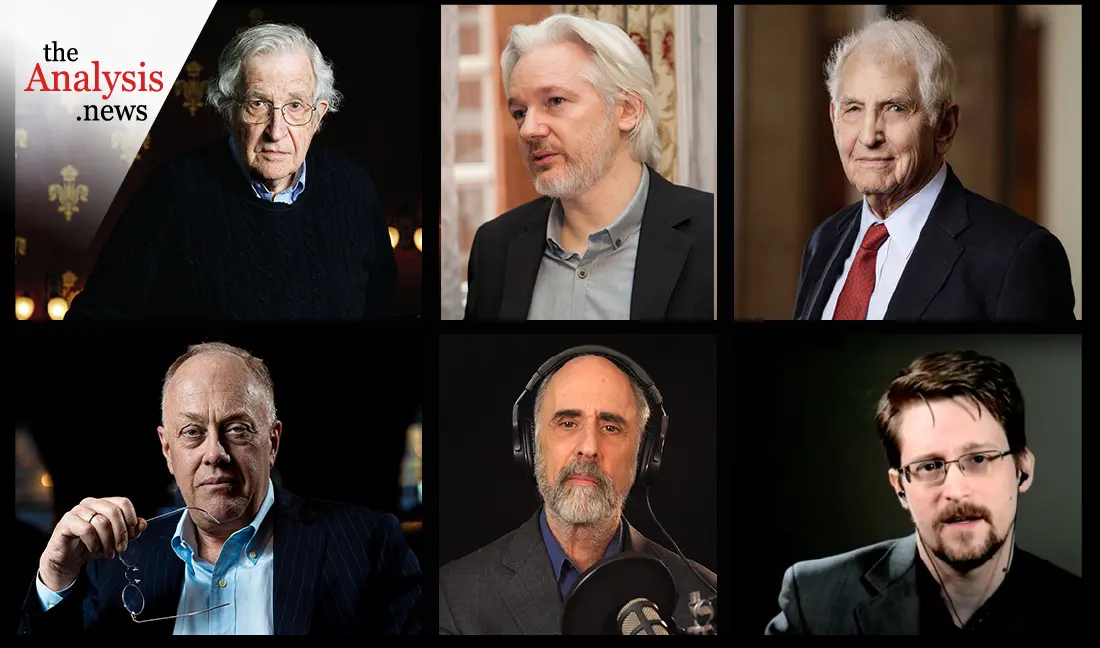
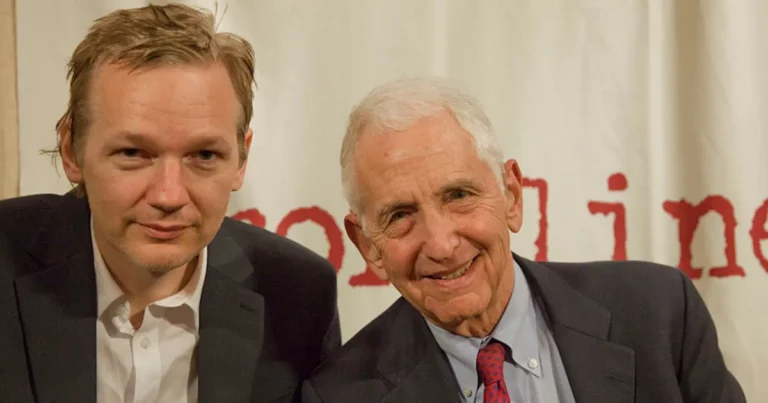
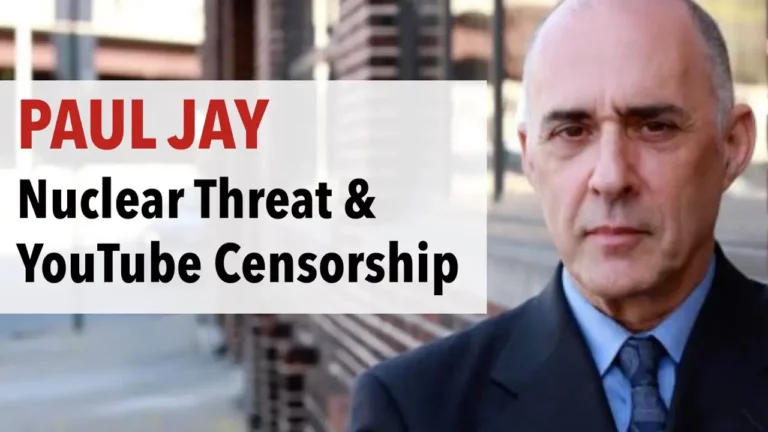
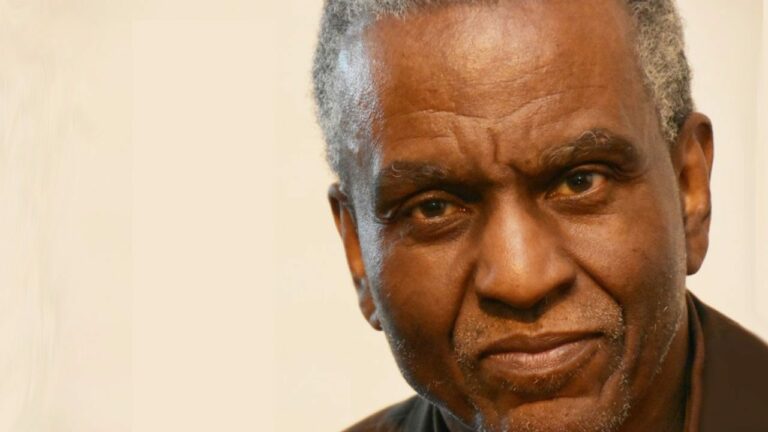
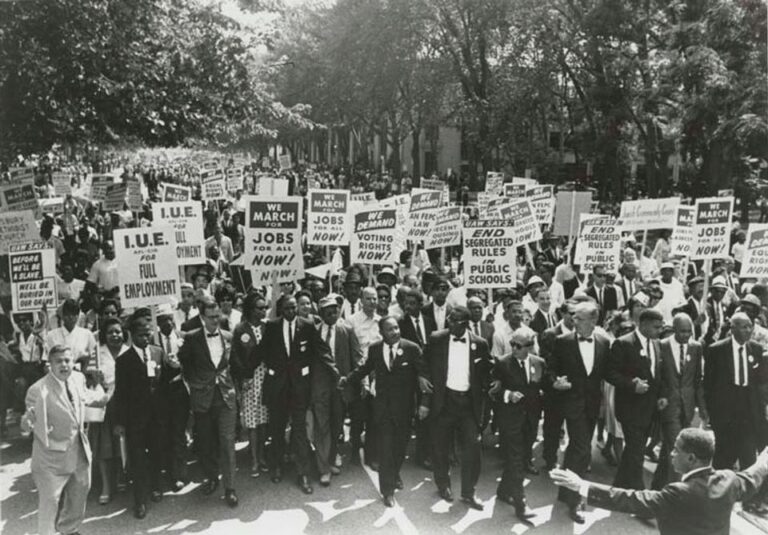

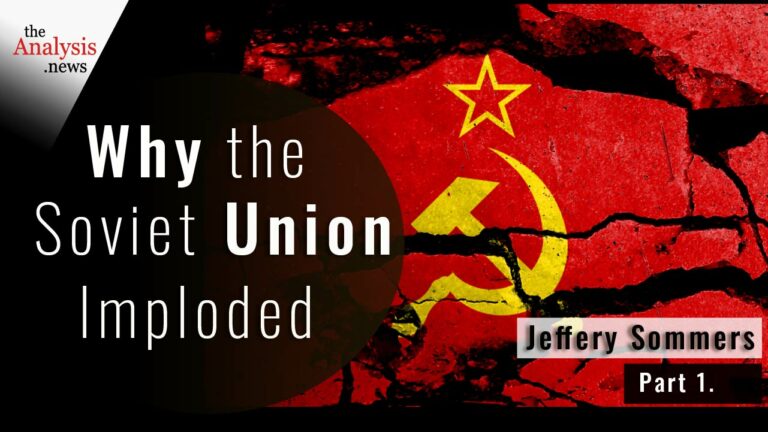
I used to have a soft spot in my heart for Australia. When at university, many decades ago, my best friend was an Australian student, and I thought about going back there with him. There was “Crockadile Dundee”, a bit of film nonsense that entertained many Americans. Australia fought with us against the Japanese in WW2. A most outstanding cinema describes the injustice suffered during the Boer War by an Australian Sergeant, Breaker Morant. Australia fought against the Kaiser, tragically, at Gallipoli, depicted in the eponymoun film, and occupying a regrettable part of Winston Churchill’s political biography.
When I think of Australia, I think of all these people and events, highly unequal in significance and pathos. The behavior of the Australian government, its desertion of its perhaps most heroic citizen, Julian Assange, is the most reproachful.